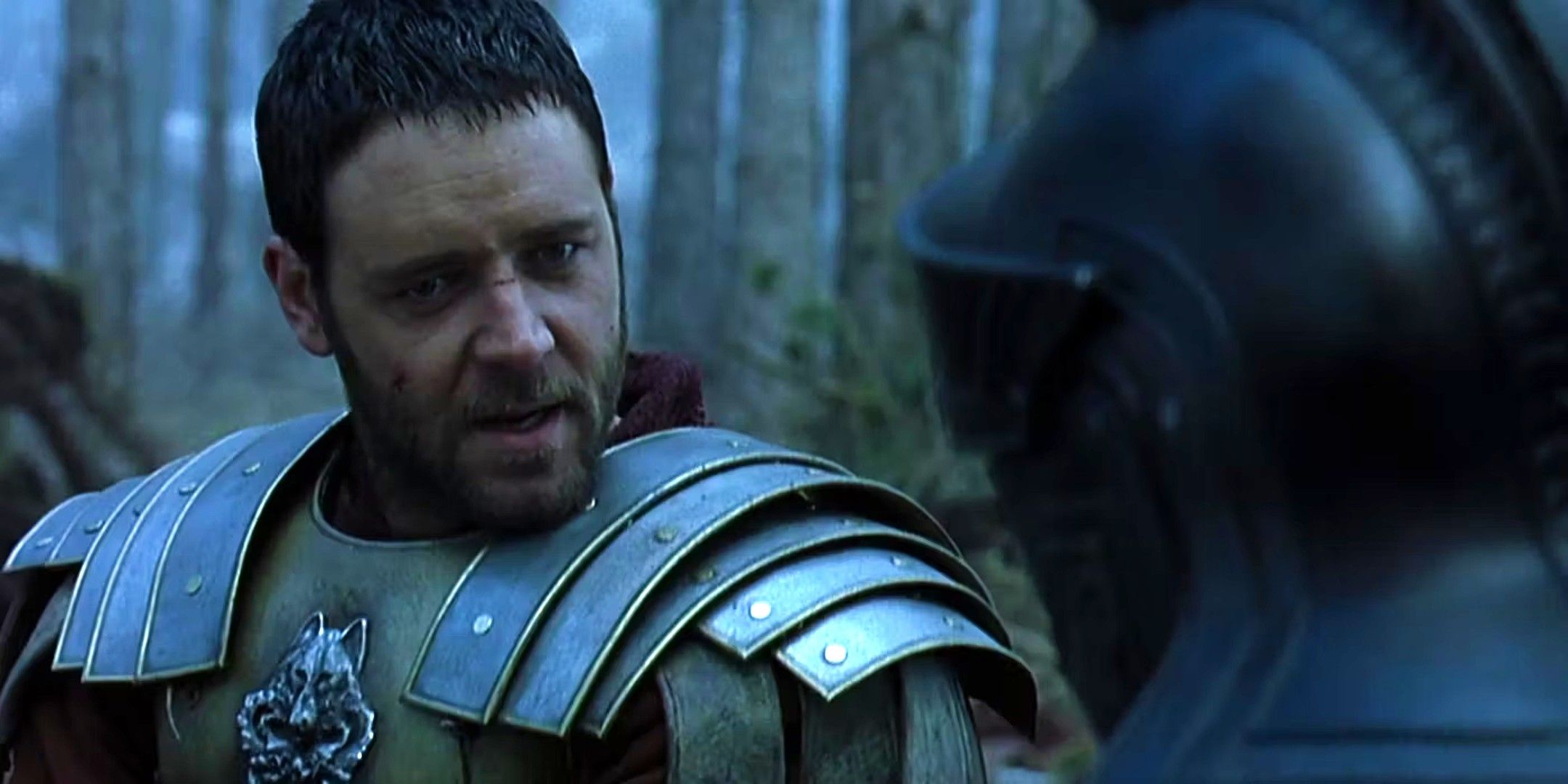There are very few actors who held a monopoly over historical epics in the early 2000s quite like Russell Crowe. Gladiator may be the first that comes to mind for most audiences, but the equally impressive Master and Commander: The Far Side of the World shouldn’t be forgotten either. Both of these incredible movies take Crowe back in time, first to the gladiatorial arenas of Ancient Rome, and second to the naval combat of the Napoleonic Wars. While Gladiator remains one of Ridley Scott’s best movies, Master and Commander is rarely discussed on the same level.
The most astounding thing about both Gladiator and Master and Commander is their sheer sense of scope. Both projects feel like films that simply don’t get made today, following a huge roster of characters through narratives with enormous stakes. Gladiator dissects the foundations of history’s most far-reaching empire, while Master and Commander deals with continental warfare on a scale never seen before. Yet they both also have extremely intimate stories about love and family that somehow get the audiences invested in a single character within these narrative webs. But only one can be Russell Crowe’s best movie.
Master And Commander Has A Higher Rotten Tomatoes Score Than Gladiator
Gladiator Is No Longer The Critics’ Choice
One of the most obvious ways to compare these movies is through their Rotten Tomatoes scores — and by this metric, Master and Commander comes out on top. The film currently holds a critics’ score of 85% in comparison to Gladiator‘s 80%, which is perhaps surprising given how well the latter performed in the industry upon its release. Scott’s landmark movie won Best Picture at the 2001 Academy Awards, while Master and Commander was beaten by The Lord of the Rings: The Return of the King.
And yet, it seems as though Master and Commander has aged better in the years since. Its higher Rotten Tomatoes score suggests that critics’ opinion of it has improved over the past two decades, while they’ve perhaps soured somewhat on Gladiator. However, it’s worth noting that Gladiator still has the higher audience score at 87% (in comparison to Master and Commander‘s 80%). This suggests that Scott’s film is the more accessible and digestible project, while Peter Wier’s is the bigger technical and critical accomplishment.
Why I Consider Gladiator Better Than Master And Commander
I’m Convinced That Gladiator’s Epic Storytelling Remains Unmatched
Ultimately, I find it difficult to agree with the Rotten Tomatoes consensus on this topic. Gladiator is not only Ridley Scott’s best historical epic but one of the best entries into the genre as a whole. It’s a captivating and absorbing story that uses the luscious backdrop of the Roman Empire to explore potent themes such as family, sacrifice, and the pursuit of legacy in such depth that many other writers simply wouldn’t have managed. It may not be perfectly accurate in terms of its depictions of history, but its storytelling is on another level.
Gladiator also features one of Russell Crowe’s strongest performances as Maximus, a character that audiences can immediately relate to. He transforms what could’ve been an otherwise overwhelming and overpowering film into a very simple story about love and revenge, distilling all the supposed key values of the Roman Empire into a single man’s journey. It’s much more effective than the sweeping storytelling of Master and Commander, as it gives the audience a more tangible emotional thread to cling to.
Master And Commander & Gladiator Will Always Be Two Of Russell Crowe’s Best Movies
The Projects Are Both Excellent In Their Own Right
No matter which movie is somebody’s favorite, there’s no denying that both Gladiator and Master and Commander are major highlights of Russell Crowe’s filmography. Projects like LA Confidential and American Gangster also deserve recognition, but they lack the immense scope that makes these movies so captivating and immersive. The world-building is simply on another level, bringing a specific period of history to life in ways that consistently feel authentic rather than constructed.
They’re both human dramas above all else, and that’s what makes them stand out in an otherwise saturated genre.
What also makes these movies so outstanding in comparison to the blockbusters made today is that they don’t rely on action or spectacle to maintain the audience’s interest. Despite their huge scale, both of these films are grounded in human emotions and relationships in a way that’s rarely seen in such big-budget productions. Of course, there are some brilliant set pieces in movies such as Gladiator with intricate stunts and fight choreography, but this isn’t the main draw of the films. They’re both human dramas above all else, and that’s what makes them stand out in an otherwise saturated genre.






